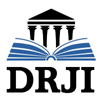DIGITAL EDUCATION REVOLUTION : THE IMPACT OF MOODLE-BASED E-CLASS ON STUDENT ACHIEVEMENT
Abstract
The learning methods in Vocational High Schools (SMK) have undergone significant changes. These changes were made because the education system needs to adapt to the conditions of society during the COVID-19 pandemic. SMKN 8 Bandung has implemented a blended learning system with 50% offline and 50% online learning. To maximize the teaching and learning process, the school has developed a Webmoodle application to aid student learning. This research aims to determine students' responses to using e-class and WhatsApp as learning media and to assess the improvement in student learning outcomes through the implementation of Webmoodle-based learning media. This study uses a quantitative approach with a quasi-experimental method, employing a nonequivalent control group design with pre-test and post-test. The results of this study show that e-class learning media is superior to WhatsApp. Nonetheless, both e-class and WhatsApp can effectively enhance student learning outcomes.
Keywords
Full Text:
PDFReferences
Abusalem, A., Bennett, L., & Antonelou-Abusalem, D. (2024). Engaging and Retaining Students in Online Learning. Athens Journal of Education, 11(1), 51–70.
Aiken, J. M., & Lewandowski, H. J. (2021). Data sharing model for physics education research using the 70 000 response Colorado Learning Attitudes about Science Survey for Experimental Physics dataset. Physical Review Physics Education Research, 17(2).
Allam, H., Alghamdi, N. K., Alghamdi, S. A., Alzaedi, A. A., Alharthi, H. A., & Elsayyad, L. K. (2022). Medical Undergraduate Students’ Perception about Online Education during the COVID-19 Pandemic. Open Access Macedonian Journal of Medical Sciences, 10(E), 213-218.
Alruwais, N. M., & Zakariah, M. (2024). Student Recognition and Activity Monitoring in E-Classes Using Deep Learning in Higher Education. IEEE Access, 12, 66110–66128.
Amin, M., Sibuea, A. M., & Mustaqim, B. (2023). The effectiveness of Moodle among engineering education college students in Indonesia. International Journal of Evaluation and Research in Education, 12(1), 1–8.
Amo, D., Cea, S., Jimenez, N. M., Gómez, P., & Fonseca, D. (2021). A privacy-oriented local web learning analytics javascript library with a configurable schema to analyze any edtech log: Moodle’s case study. Sustainability, 13(9), 5085.
Atashinsadaf, A., Ramezani-badr, F., Long, T., Imanipour, M., & Amini, K. (2024). Facilities, challenges, attitudes, and preferences of nursing students related to e-learning in the Covid-19 pandemic in Iranian context: a cross-sectional study. BMC Medical Education, 24(1), 50.
Gamage, S. H., Ayres, J. R., & Behrend, M. B. (2022). A systematic review on trends in using Moodle for teaching and learning. International journal of STEM education, 9(1), 9.
García-Murillo, G., Novoa-Hernández, P., & Serrano Rodríguez, R. (2023). On the Technological Acceptance of Moodle by Higher Education Faculty—A Nationwide Study Based on UTAUT2. Behavioral Sciences, 13(5), 419.
Imane, R. (2021). Involving students in the instructional design process to improve their satisfaction with their learning in the COVID-19 era. International Journal of Information and Education Technology, 11(9), 410–415.
Lychuk, M., Bilous, N., Isaienko, S., Gritsyak, L., & Nozhovnik, O. (2021). Smart automated language teaching through the smart sender platform. European Journal of Educational Research, 10(2), 841–854.
Marfuah, M., Suryadi, D., Turmudi, T., & Galang Isnawan, M. (2022). Providing Online Learning Situations for In-Service Mathematics Teachers’ External Transposition Knowledge During COVID-19 Pandemic: Case of Indonesia. The Electronic Journal of E-Learning, 20(1), 69–84.
Mujiono, & Fatimah, S. (2022). Moodle Integration Intervention in EFL Virtual Classroom and Academic Flow on University Students’ Achievement in Writing. Theory and Practice in Language Studies, 12(10), 2182–2190.
Nikolopoulou, K. (2022). Students’ mobile phone practices for academic purposes: strengthening post-pandemic university digitalization. Sustainability, 14(22), 14958.
Nozhovnik, O., Harbuza, T., Teslenko, N., Okhrimenko, O., Zalizniuk, V., & Durdas, A. (2023). Chatbot Gamified and Automated Management of L2 Learning Process Using Smart Sender Platform. International Journal of Educational Methodology, 9(3), 603–618.
Sharma, A., & Patwardhan, S. S. (2024). The role of new technology in teaching Physics: Use of LMS for learner centric interaction outside the classrooms. Journal of Engineering Education Transformations, 37 (Special Issue 2).
Talysheva, I., Pegova, K., & Khaliullina, L. (2021). The Use of Electronic Educational Resources of the University as a Means of Increasing the Educational Motivation of Students. International Journal of Emerging Technologies in Learning, 16(1), 289–304.
Werth, A., West, C. G., Sulaiman, N., & Lewandowski, H. J. (2023). Enhancing students’ views of experimental physics through a course-based undergraduate research experience. Physical Review Physics Education Research, 19(2), 020151.
Zuma, S., & Mthembu, B. (2023). Exploring ideological-ware as a resource in the use of Moodle in higher education – analysing Covid-19 publications. South African Computer Journal, 35(1), 164–183.
DOI: https://doi.org/10.17509/jmee.v11i1.71716
Refbacks
- There are currently no refbacks.
Copyright (c) 2024 UNIVERSITAS PENDIDIKAN INDONESIA

This work is licensed under a Creative Commons Attribution-ShareAlike 4.0 International License.
Indexed by:
ISSN: P 2356-4997
View My Stats
 Journal of Mechanical Engineering Education (Jurnal Pendidikan Teknik Mesin)
Journal of Mechanical Engineering Education (Jurnal Pendidikan Teknik Mesin)








